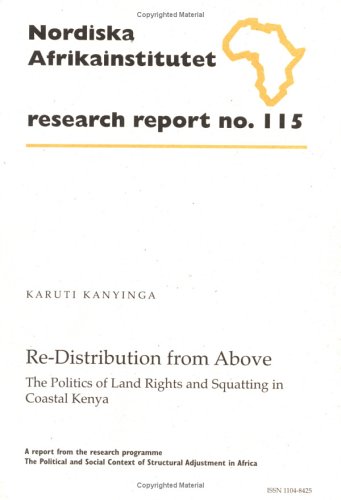Proponents of the individualization of land titles in Africa have hinged their position orimarily on the argument that it would encourage land holders to access credit, invest more of their resources, including labour and time, in the land, engage in responsible, environmentally-friendly land use, and, overall, raise the level of agricultural productivity whilst limiting the damaging consequences of the "tragedy of the commons". Using empirical evidence collected from the coastal district of Kenya, an area with a long history of private land ownership which is also situated in a country with one of the most comprehensive efforts at land tenure reform dating from the colonial period, this report challenges the key assumptions of the proponents of land indivualization. In so doing, the author not only points to the many dysfunctionalities associated with land privatisation, including the numerous conflicts it generates on account of the dispossessions and landlessness associated with it, it also reinforces the growing critique that customary land tenure is far more complex and flexible than its critics are prepared to admit.
In focusing the Land Question primarily on the private title-agricultural output/productivity nexus, proponents of land individualisation also engage in excessive economic reductionism which neglects the key political and social issues that underpin the "Land Question complex" in contemporary Kenya.
- ISBN10 9171064648
- ISBN13 9789171064646
- Publish Date November 2000
- Publish Status Out of Print
- Out of Print 8 May 2012
- Publish Country SE
- Imprint The Nordic Africa Institute
- Format Paperback
- Pages 126
- Language English
